
International Energy Journal
Scope & Guideline
Illuminating Trends in Energy Policy and Practice
Introduction
Aims and Scopes
- Renewable Energy Technologies:
The journal emphasizes the development and optimization of renewable energy technologies such as solar, wind, biomass, and hydroelectric systems, exploring their integration into existing frameworks. - Energy Policy and Economic Analysis:
Research on energy policies, economic impacts, and market dynamics is a core focus, aiming to inform stakeholders about the implications of energy decisions on economic growth and sustainability. - Energy Efficiency and Management:
The journal addresses methodologies and strategies for improving energy efficiency across various sectors, including residential, industrial, and commercial applications. - Environmental Impact and Sustainability Studies:
A significant portion of the research investigates the environmental implications of energy systems and technologies, promoting sustainable practices to mitigate climate change. - Technological Innovations in Energy Systems:
The journal encourages submissions that introduce novel technological solutions for energy generation, storage, and consumption, including smart grid technologies and energy management systems.
Trending and Emerging
- Decarbonization Strategies and Net Zero Goals:
A significant increase in research addressing strategies for achieving net zero emissions and decarbonization pathways indicates a strong focus on climate action and sustainability. - Hybrid Energy Systems and Microgrids:
The growing interest in hybrid energy systems and microgrid solutions exemplifies the trend towards localized energy solutions that enhance resilience and efficiency in energy distribution. - Impact of Energy Transition on Socioeconomic Factors:
Emerging studies are increasingly examining how energy transitions affect socioeconomic factors, including health outcomes and economic development, reflecting a holistic approach to energy research. - Advanced Energy Forecasting and Optimization Techniques:
The use of sophisticated forecasting models and optimization techniques for energy management is on the rise, showcasing a trend towards data-driven decision-making in energy systems. - Integration of Smart Technologies in Energy Management:
Research focusing on the integration of smart technologies, including IoT and AI in energy systems, is emerging as a critical area, emphasizing the role of technology in optimizing energy usage.
Declining or Waning
- Conventional Fossil Fuel Technologies:
Research focused on traditional fossil fuel technologies and their efficiencies appears to be declining, potentially due to a collective shift toward renewable energy sources and sustainability. - Carbon Capture and Storage (CCS) Strategies:
The frequency of papers specifically addressing CCS technologies and strategies has decreased, suggesting a waning interest or a pivot towards more integrated approaches involving renewable energy. - Nuclear Energy Studies:
Research relating to nuclear energy, including safety, efficiency, and waste management, is less frequent, possibly as a result of growing concerns about nuclear risks and a focus on renewable alternatives. - Energy Storage Systems:
Although energy storage remains crucial, the specific research on traditional storage systems (like pumped hydro) has diminished, with a greater emphasis now on innovative solutions such as battery technologies. - Energy Consumption in Non-Energy Sectors:
The exploration of energy consumption impacts in sectors outside of traditional energy industries, such as agriculture and transportation, seems to be less prevalent in recent publications.
Similar Journals
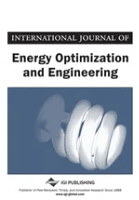
International Journal of Energy Optimization and Engineering
Exploring Strategies for a Greener FutureThe International Journal of Energy Optimization and Engineering, published by IGI Global, is a leading platform dedicated to advancing the field of energy management and optimization. With its ISSN 2160-9500 and E-ISSN 2160-9543, this journal serves as an essential resource for researchers, professionals, and students interested in innovative strategies for energy efficiency and sustainability. Although it does not currently offer Open Access options, the journal is committed to high-quality peer-reviewed content that aims to address the pressing challenges of energy consumption, renewable resources, and optimization techniques in engineering applications. The significance of this journal in the evolving landscape of energy technologies makes it an invaluable source for those aspiring to contribute to the development of sustainable energy practices across the globe.
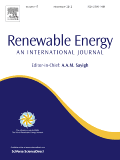
Renewable Energy
Leading the Charge for a Greener Planet.Renewable Energy is a prestigious international journal published by PERGAMON-ELSEVIER SCIENCE LTD, dedicated to advancing the field of renewable energy technologies and their applications. Since its inception in 1991, this journal has provided a critical platform for researchers, professionals, and students to explore innovative solutions in renewable energy, sustainability, and environmental protection. With an impressive impact factor and ranked in the top quartile (Q1) of its category, Renewable Energy is recognized for its high-quality, peer-reviewed research that significantly contributes to the scientific and professional discourse in the sector. The journal is indexed in Scopus, holding an esteemed rank of #21 out of 270 in its field, underscoring its influence and reach. Researchers can access the journal’s articles through traditional subscriptions, ensuring a broad dissemination of vital knowledge that supports the global transition to sustainable energy sources. Addressed from its headquarters in Oxford, England, Renewable Energy is crucial for anyone involved in the journey towards a sustainable future, fostering collaboration and innovation in a critical area of environmental science.

Frontiers in Energy Research
Exploring diverse pathways in energy studies.Frontiers in Energy Research is a prestigious open-access journal published by FRONTIERS MEDIA SA, dedicated to advancing knowledge in the diverse fields of energy research. Launched in 2013, the journal has established itself as a pivotal platform for disseminating high-quality research, particularly in areas such as Economics and Econometrics, Energy Engineering and Power Technology, and Renewable Energy, Sustainability and the Environment. With a notable impact factor and impressive quartile rankings, including Q2 in multiple categories and a reputation for rigorous peer review, Frontiers in Energy Research offers researchers, professionals, and students alike a vital resource for exploring the latest innovations and insights in energy studies. Operating from its base in Lausanne, Switzerland, this journal is committed to enhancing open accessibility to relevant research, significantly contributing to the global dialogue on energy solutions and sustainability.

International Journal of Power and Energy Systems
Pioneering Research for a Sustainable TomorrowInternational Journal of Power and Energy Systems, published by ACTA PRESS, serves as a vital platform for research and discourse in the multifaceted fields of applied mathematics, electrical and electronic engineering, and energy engineering. With an ISSN of 1078-3466 and an E-ISSN of 1710-2243, this journal covers a broad spectrum of topics pertinent to power and energy systems, showcasing innovative research from its inception in 1996 through to its projected contributions in 2024. Operating from Calgary, Canada, the journal, though not currently open access, provides invaluable insights into the challenges and advancements within these domains, as reflected in its categorization in the Q4 quartile across multiple indices. Despite being positioned in lower output percentiles in 2023 rankings on Scopus—specifically, #212 in Energy Engineering and Power Technology—it remains a critical resource for scholars seeking to expand the frontiers of knowledge in energy sustainability and system efficiency. Researchers, professionals, and students alike will find the journal’s commitment to fostering academic dialogue and disseminating pioneering results both essential and inspiring.
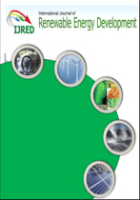
International Journal of Renewable Energy Development-IJRED
Championing Research for a Sustainable TomorrowThe International Journal of Renewable Energy Development (IJRED), published by DIPONEGORO University in Indonesia, serves as a pivotal platform for scholarly research in the dynamic fields of renewable energy and sustainability. With a dedication to advancing knowledge since its inception in 2012, IJRED has embraced an Open Access model, ensuring that vital research is freely accessible to a global audience. The journal's impressive impact factor and its classification in the Q2 and Q3 quartiles across multiple categories—including Energy Engineering and Power Technology, Environmental Engineering, and Renewable Energy, Sustainability and the Environment—underscore its significance and authority in contemporary energy discourse. Indexed in Scopus, the journal consistently ranks among the top-tier publications, making it an essential resource for researchers, professionals, and students committed to innovating sustainable solutions in the face of climate challenges. Researchers are invited to contribute to this essential body of work as the journal continues to converge impactful research until 2024.
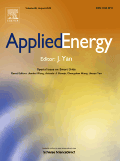
APPLIED ENERGY
Illuminating pathways to efficient energy practices.APPLIED ENERGY, published by Elsevier Science Ltd, is a leading journal dedicated to the advancing field of energy research, focusing on practical engineering solutions to contemporary challenges in energy management, sustainability, and environmental impact. With a rigorous peer-review process and a strong commitment to promoting innovative research, APPLIED ENERGY proudly holds multiple Q1 rankings across various categories, including Building and Construction, Civil and Structural Engineering, and Renewable Energy, reflecting its prestigious position within the academic community. Researchers and professionals can benefit from its comprehensive scope, covering topics that span from policy and technology to market dynamics. Although it is not an open-access journal, it provides access options that facilitate research dissemination. With its historical significance since 1975 and an ambitious outlook up to 2025, APPLIED ENERGY continues to be an essential resource for anyone looking to stay at the forefront of energy research and application.

Journal of Modern Power Systems and Clean Energy
Pioneering Research for a Cleaner, Greener Future.Journal of Modern Power Systems and Clean Energy is a leading academic platform dedicated to advancing the fields of energy engineering, power technology, and renewable energy. Published by the prestigious STATE GRID ELECTRIC POWER RESEARCH INSTITUTE in China, this Open Access journal has been a significant contributor to the dialogue on sustainable energy solutions since its inception in 2013. With a Q1 ranking in both the Energy Engineering and Power Technology and Renewable Energy, Sustainability and the Environment categories, it serves a crucial role for researchers and professionals striving to push the boundaries of innovation in power systems and clean energy technologies. The journal’s impact is reflected in its impressive Scopus rankings, placing it in the top 10% of its categories, making it an invaluable resource for academia and industry alike. The Journal of Modern Power Systems and Clean Energy invites submission of original articles, reviews, and case studies that resonate with its mission of promoting sustainability and addressing contemporary energy challenges.

Global Energy Interconnection-China
Driving the Future of Energy with Cutting-edge ResearchGlobal Energy Interconnection-China is an esteemed Open Access journal published by KEAI PUBLISHING LTD that focuses on the rapidly evolving fields of energy engineering and power technology. Since its launch in 2018, the journal has become a vital resource for researchers and professionals interested in sustainable energy solutions and innovative technologies, addressing the critical challenges facing the global energy landscape. With an impressive Q2 categorization in multiple engineering and energy-related disciplines, the journal ranks highly in Scopus, positioning itself as a leading platform for disseminating impactful research. Specifically, it excels in Automotive Engineering and Control and Systems Engineering, as evidenced by its competitive standing within the top quantiles of its fields. By leveraging its open access model, Global Energy Interconnection-China ensures that high-quality research is accessible to a worldwide audience, fostering collaboration and advancements in renewable energy, sustainability, and environmental conservation. For researchers, professionals, and students alike, this journal serves as a pivotal forum for sharing insights and innovations that shape the future of energy interconnection.
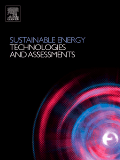
Sustainable Energy Technologies and Assessments
Exploring Breakthroughs in Renewable TechnologiesSustainable Energy Technologies and Assessments is a prestigious journal published by ELSEVIER, based in the United Kingdom, focusing on the critical field of energy engineering and its intersection with sustainability. Since its inception in 2013, the journal has established itself as a leading platform for disseminating innovative research and assessments of sustainable energy technologies, earning a notable Q1 ranking in both Energy Engineering and Power Technology, as well as Renewable Energy, Sustainability, and the Environment. With an impressive Scopus ranking—#22 out of 272 in Energy Engineering and #40 out of 270 in Renewable Energy—this journal is essential for researchers and professionals seeking to advance their knowledge on cutting-edge developments and assessments in sustainable energy. Although the journal operates on a subscription basis, it remains committed to promoting high-quality research that aligns with global sustainability objectives. Researchers and students alike will find invaluable insights and data that shape the future of renewable energy technologies within these pages.
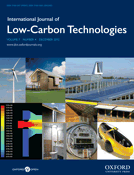
International Journal of Low-Carbon Technologies
Exploring cutting-edge solutions for a low-carbon world.International Journal of Low-Carbon Technologies is a premier, peer-reviewed publication dedicated to advancing the field of low-carbon technologies and sustainable practices. Published by OXFORD UNIVERSITY PRESS, this journal serves as a vital resource for researchers, professionals, and students alike, providing insightful research and innovative solutions for a sustainable future. With its ISSN 1748-1317 and E-ISSN 1748-1325, the journal is recognized globally, boasting an impressive impact in its categories, including a Q1 ranking in Architecture and Q2 rankings in both Civil and Structural Engineering and Environmental Science as of 2023. It is open access since 2014, facilitating the dissemination of knowledge to a wider audience, and encourages critical discourse on environmental sustainability across converging disciplines. The journal’s Scopus rankings reflecting its standing—ranked #23 in Architecture (88th percentile) and #130 in Civil and Structural Engineering—underscore its importance in driving forward the scientific agenda in low-carbon technologies. As we journey from 2007 towards 2024, the International Journal of Low-Carbon Technologies remains a cornerstone for research and dialogue in reducing carbon footprints and promoting resilient infrastructure.